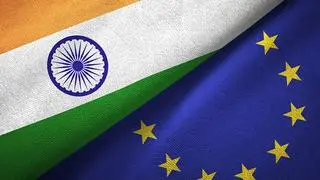The Foreign Trade Policy (FTP) to be announced on April 1 will focus on boosting exports from employment generating manufacturing sectors, streamlining incentive schemes for services exports, and increasing digitisation for seamless transactions. The FTP is for five years (2015-2020).
“Incentive schemes will be streamlined. Instead of a plethora of schemes, the focus will be on incentivising exports of identified products to targeted markets through the market-linked focus product scheme,” a Commerce Ministry official told BusinessLine .
Labour-intensive sectors, such as textiles and leather, will be in focus as it would promote exports as well as generate employment, which is a primary goal of the Centre, the official added.
The ‘Served from India’ scheme for services exporters is likely to see changes.
“The import duty exemption scrips (valued at 10 per cent of foreign exchange earned) could be made tradeable as several sectors that do not import can’t use them,” said Ajay Sahai, Director-General of Federation of Indian Export Organisations.
Incentive rates may be increased for sectors such as education, health and tourism, while foreign services companies in India may be denied the benefit, the official said.
The FTP, expected since last August, is being announced when exports are under pressure due to a contraction in global demand.
The target of $320 billion for the fiscal seems beyond reach as exports in the first 11 months, at $284 billion, are just 0.88 per cent higher than the previous year. A plan will also be laid out for increased digitisation and paperless transactions.
“We want to move to a system where no documents would be required to be submitted physically,” the official added.
May cut export obligationIn line with the concept of ‘Make in India’, the Commerce Ministry may reduce export obligation for procurement of domestic capital goods under the Export Promotion Capital Goods scheme, the official added.
The EPCG scheme waives duty on imported capital goods and excise on domestically procured goods against an export obligation on the purchaser. The Centre may also restrict import of used capital goods.








Comments
Comments have to be in English, and in full sentences. They cannot be abusive or personal. Please abide by our community guidelines for posting your comments.
We have migrated to a new commenting platform. If you are already a registered user of TheHindu Businessline and logged in, you may continue to engage with our articles. If you do not have an account please register and login to post comments. Users can access their older comments by logging into their accounts on Vuukle.